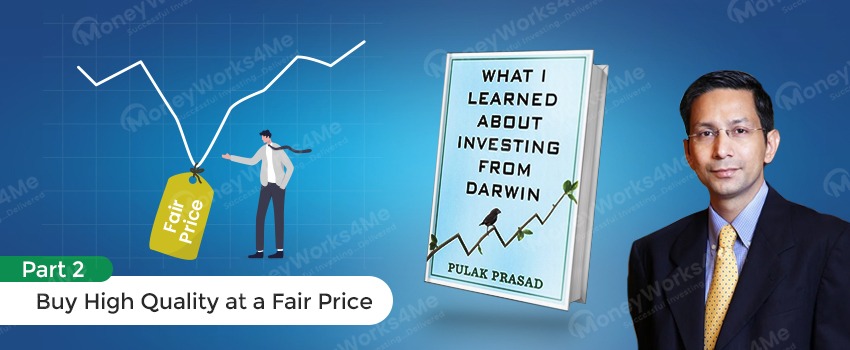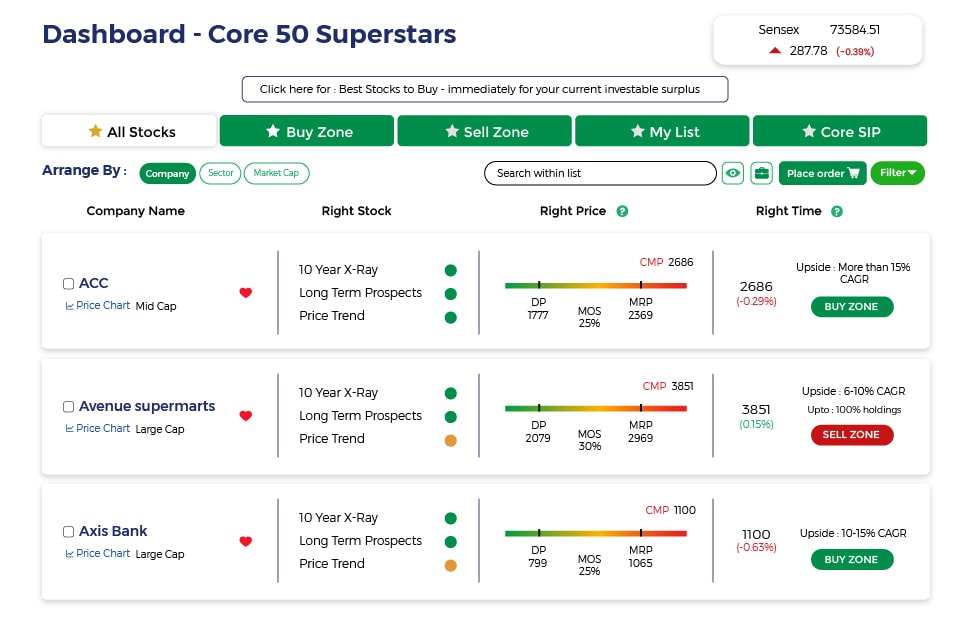The insights gleaned from the book have been skilfully dissected and presented across three distinct articles. Immerse yourself in the first installment of our comprehensive summary, where we distill the essence of Part Two – Buy High Quality at a Fair Price.
To determine high quality, an investor must choose the right metric because choosing one metric leads to choosing various factors that accompany a particular metric. Choosing growth seems reasonable, but can also lead to choosing a company that uses leverage, mergers and acquisitions, or even aggressive accounting. Having the right North Star metric makes a big difference.
While one can determine business quality, high-quality businesses may not usually trade at fair prices. However, when such businesses are available at great prices, the immediate causes for the market environment or even the business suggest doom. An investor would be wise to ignore the immediate environment as it may not represent the ultimate future of the company, and should use corrections to purchase wonderful businesses at fair prices.
The title deals with two very subjective ideas, high quality and fair prices which have no common definition among investors. High quality can be defined as high-growth companies with high margins and good management quality, while fair prices can often be defined as low prices or low relative valuations. However, these answers are inappropriate and inadequate according to Nalanda’s philosophy.
Charles Darwin’s magnum opus, ‘On the Origin of Species,’ states that selecting based on one quality would lead to an unconscious choice of various other qualities. For example, choosing hairless dogs would lead to an unconscious choice of imperfect teeth, while choosing pigeons with short beaks would lead to an unconscious choice of also choosing pigeons with short feet. Choosing one metric would lead to choosing various others. Therefore, just as tameness is the key metric for domestication of animals, an investor must use a metric for high quality that would not include a large number of low quality companies.
Nalanda’s North Star metric or the key criteria for filtering businesses is the Return on Capital Employed (ROCE). Companies with consistently high ROCEs are likely to (a) be run by excellent management teams, (b) have a strong competitive advantage, and (c) allocate capital well. This idea is drawn from the Siberian experiment that selects for tameness in wild silver foxes, which leads to the development of shorter snouts, piebald coloration, and docility over generations. Selecting the appropriate trait or metric holds the potential for far-reaching consequences with multiplied impacts. However, the search does not end here.
Additionally, Nalanda focuses on robustness as a key criterion for investing in businesses, which is defined as resilience to external and internal shocks. Nalanda prefers businesses with robustness at multiple levels – high ROCE, minimal or no debt, strong competitive advantages, fragmented customer and supplier bases, stable management, and slow-changing industries. While current robustness does not guarantee future robustness, robustness is an important consideration. The loss of robustness can be reduced by purchasing a high-quality business at an attractive valuation when such rare occasions arise.
An investor would wonder when and why these businesses are available at fair prices. No investor, in their right mind, would sell high-quality assets at a fair price if they own them. However, investors may not always be in their right minds when the proximate scenario looks terrible, which leads to stock price corrections. Pulak Prasad’s own experience suggests that market participants do not and cannot know the reason for proximate market movements, and proximate market movements in either direction can be deceptive. The correction in the Global Financial Crisis of 2008 and the Covid-19 Pandemic of 2020 were terrible proximate macroeconomic conditions that led to businesses being sold at attractive prices; however, these macroeconomic situations have not materially impaired the quality of great businesses. While one may make such a comment on macroeconomic scenarios, the decision to invest or sell is tougher when a company underperforms with regards to peers. Pulak Prasad suggests that as long as the proximate reason for the underperformance is not due to any permanent impairment in the quality of the business, such proximate problems can be ignored.
It certainly is tough to ignore the immediate future while investing as returns are based on future performance. Neither investors nor management will be reasonably accurate in projecting the future over a long period of time, and therefore, the history of the company acts as a stronger barometer for success rather than any guidance. The future remains unknown and uncertain, and the longer the projection period, the higher the level of unknowability and uncertainty. However, by understanding the history of business in industries with little change would yield sufficient results. While this framework does not guarantee that past performance would continue or that failing businesses would continue to remain as such, the framework has been largely successful in Nalanda’s capital allocation decisions. Not getting it wrong is more important than getting it right.
Convergence is extremely important in not getting it wrong. Nalanda states that it does not invest in individual businesses but rather on business templates. This implies that a similar business in a different geography or at a different point in time should have been similarly successful. Convergence is the dominant pattern in the business world and only on rare occasions, it’s not. Nalanda may miss the rare occasions, but the exception to the rule does not invalidate the rule.
Missed Part One? Catch up now – click here!
Get ready for more wisdom! Click here for Part Three now.
Already have an account? Log in
Want complete access
to this story?
Register Now For Free!
Also get more expert insights, QVPT ratings of 3500+ stocks, Stocks
Screener and much more on Registering.







 Download APP
Download APP





















Comment Your Thoughts: